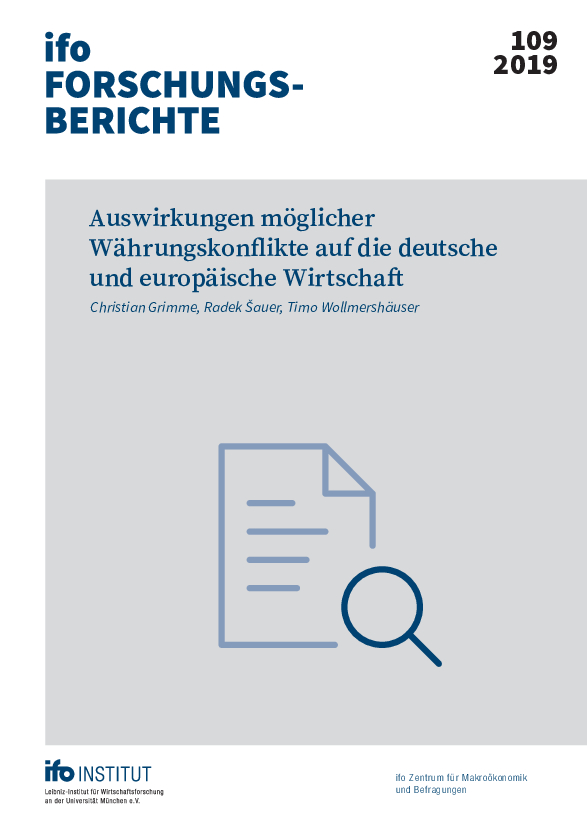Auswirkungen möglicher Währungskonflikte auf die deutsche und europäische Wirtschaft
ifo Institut, Munich, 2019
ifo Forschungsberichte / 109

This expertise describes and quantifies the causes of various forms of currency manipulation and its effects on the German and European economy. The first part shows what is meant by a currency war. In public debate, the manipulation of a currency is usually diagnosed on the basis of an observed change in the exchange rate. However, it is often overlooked that exchange rates also react to economic policy measures that were not decided with the aim of influencing the exchange rate. These include, for example, the policy of quantitative easing in the USA and the euro zone, but also the trade conflict triggered by the USA. In the second part, eight scenarios of a possible currency conflict are simulated and their effects on the German and European economy are quantified using the ifo DSGE model. Overall, the effects are small. In particular, the effects of the introduction of permanent import tariffs in the rest of the world on real gross domestic product in the euro zone and on the external value of the euro are negligible in quantitative terms. By contrast, Germany in particular benefits in the short-run from a currency conflict in the rest of the world, which is initiated by an unexpected and temporary cut in policy rates of these central banks. The results are similar if the central banks in the rest of the world use the exchange rate directly as an instrument and devalue their currency against the euro. The most significant short-term effects occur in a competitive devaluation, in which the ECB reacts to the trade and currency conflict initiated in the rest of the world with a cut in policy rates, which counteracts the appreciation of the euro.